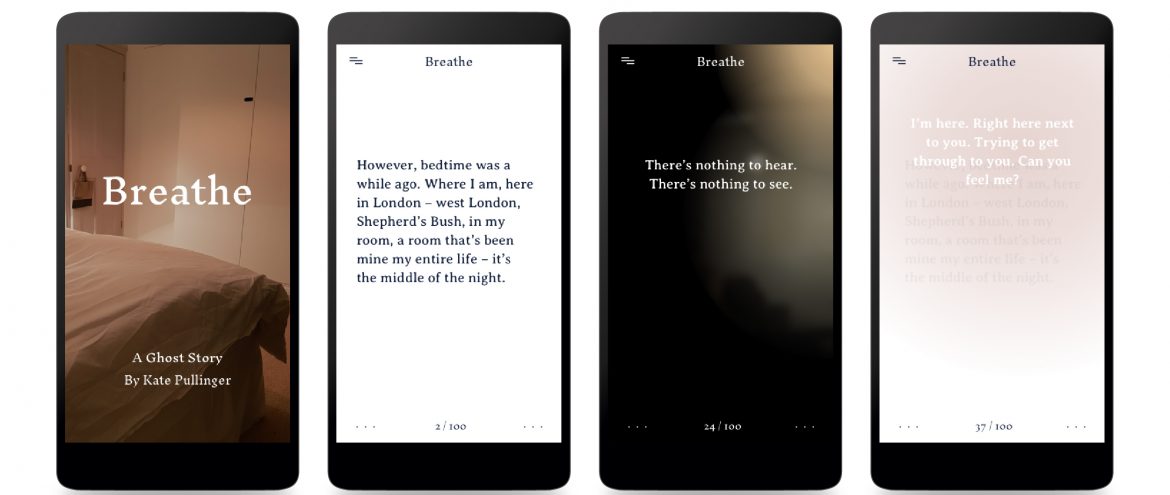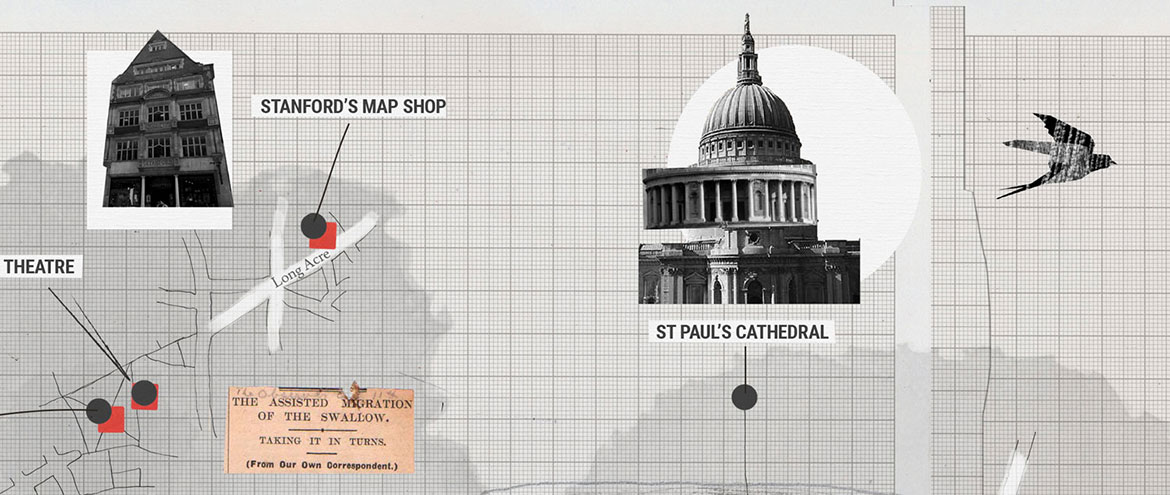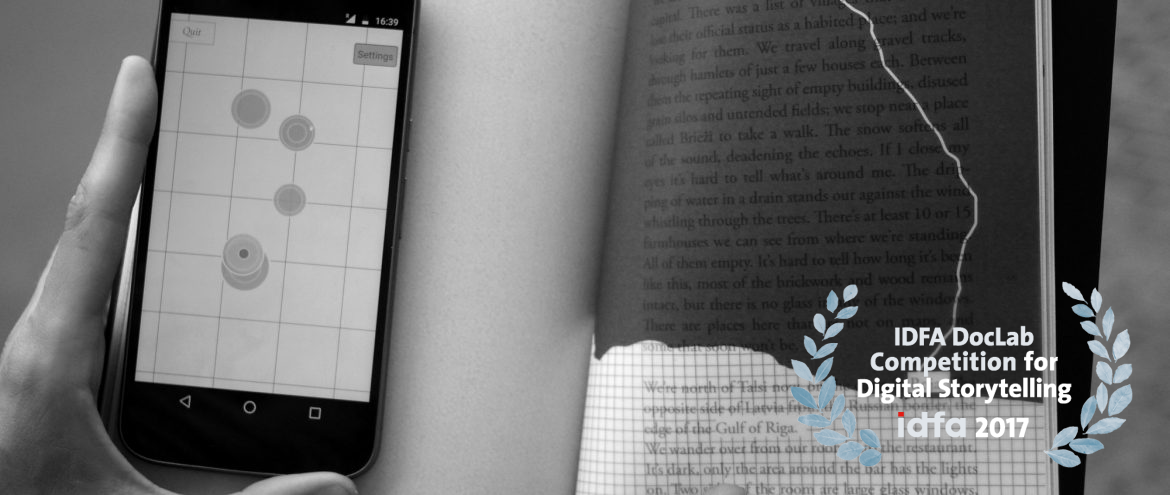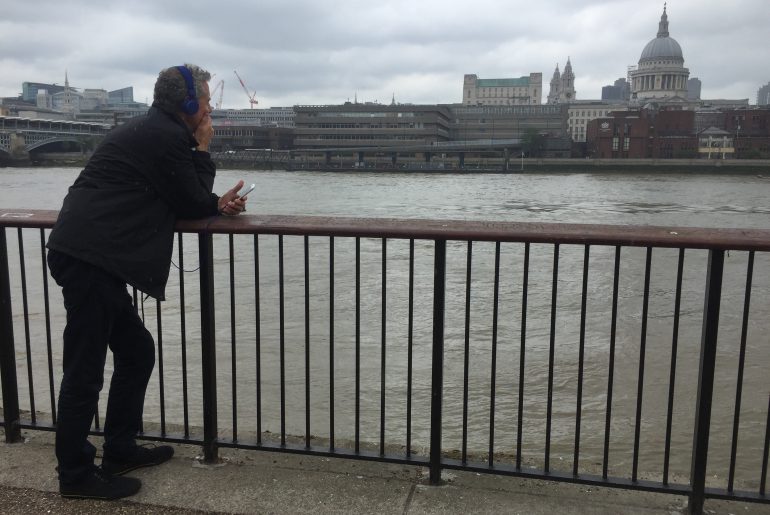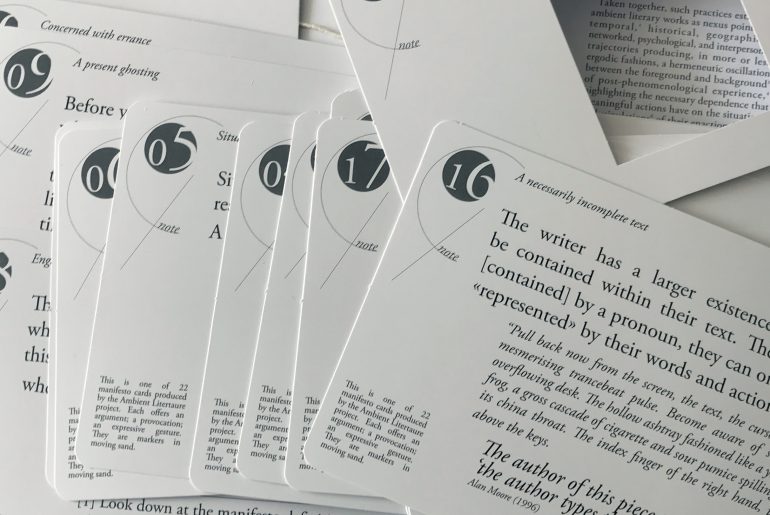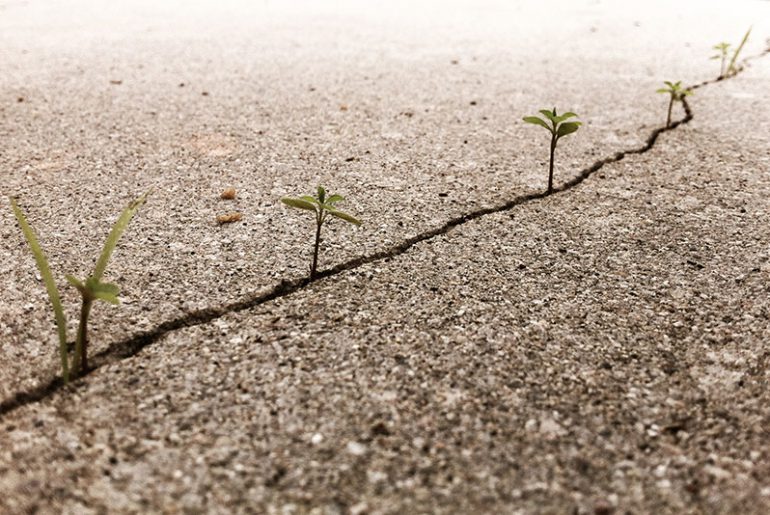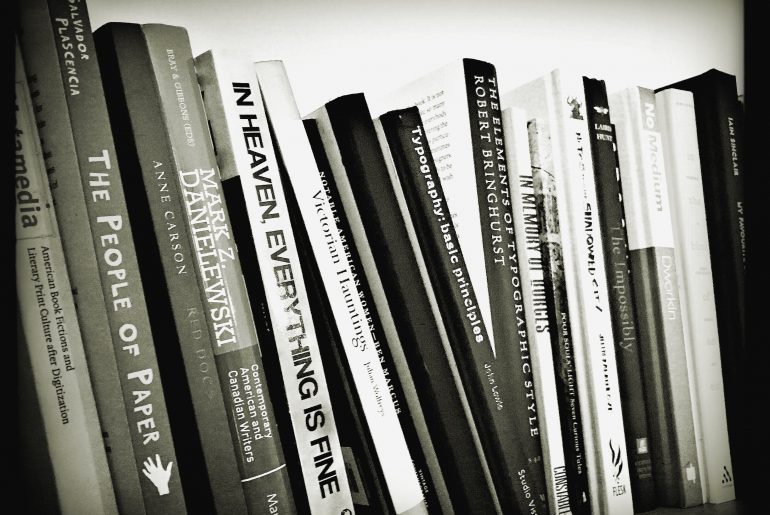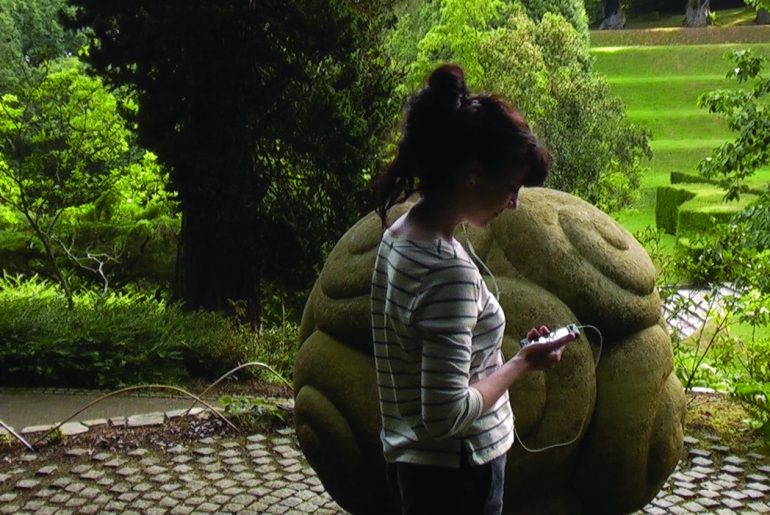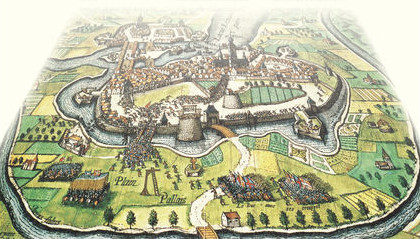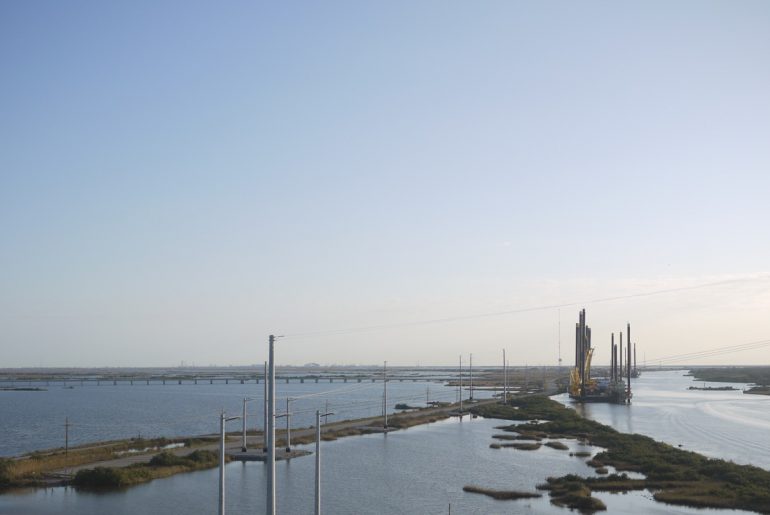James Attlee, author of The Cartographer’s Confession, created for Ambient Literature, the AHRC funded research project investigating the locational and technological future of the book, in conversation with with Emma Whittaker, the project’s producer. EW – What has been your process for writing The Cartographer’s Confession? JA – It has been quite an organic one. I always knew I wanted the app to be set in a real place — London — and I wanted it to have a visceral connection with locations within the city. In part, The Cartographer’s Confession is about London itself, a city I love, but one so vast and unknowable I needed a unifying theme around which to build a coherent narrative. I found it in some photographic prints and negatives that came into my possession quite recently, street scenes taken in London in the late 1940s and early 1950s. They show a low-rise city…
Porous Does Not Mean Leaky
As we approach (more or less) the half way point in our research project, something other than the passage of time and available funding has been on our minds. Something more fundamental to the project itself. Duncan Speakman’s It Must Have Been Dark by Now launched last week (and, all things being equal, will be coming to a library near you sometime in the next six months — details to follow) and we held our mid-point Symposium. What was on our mind was stating, or trying to state, what it was we meant by Ambient Literature. We’ve been necessarily vague about this in the last year, partly because of the nature of a project that knows it draws on an existing canon of work (which means we’ve been careful about the borders of our study) and the uncertainty about what we mean by this. Is it a genre? A narrow…
The Event of Ambience
In a chapter called “Against Allegory,” in his book J.M. Coetzee and the Ethics of Reading (2004), Derek Attridge argues that we should, more often, stop asking what a text “really means.” He’s writing about the South African novelist J.M. Coetzee, a writer who critiqued the structures and policies of apartheid and whose writing was yet allowed through the censors of the regime that enforced this bureaucratic racism because sympathetic academics on the censorship board could persuasively say that he was writing about something else entirely. Because of the conditions under which his work was published, Coetzee, Attridge argues, tends to be read as someone hiding his true meaning: even as his work rarely deals with the specificities of South African politics, set in different (and often ambiguous) times and places, it still tends to be read as “standing in” for apartheid, as being an allegory for the politics of…
Chilled Ambient
I left Greece without knowing his name. Our encounter was fleeting, troubling. Not a summer romance. You can’t romance a dead person. Besides, my heart is already tied up in knots over someone else, and that person — oh, why bother being coy? Arjun. He doesn’t feel the same way about me. Why would he? from Liquid Continent I’ve been absent from this blog for a while as I begin the process of writing the first draft of my ambient literature story. “Liquid Continent” resides within a storyworld I’ve been creating over the past two years; my main character, Flo Evans, is a young woman who can communicate with the dead through her phone. “Liquid Continent” is about Flo but it’s also about student debt, the workplace, families, friends, and the refugee crisis in the Mediterranean. It’s about grief, and longing. Plus jokes. Ideally, you will read my story at…
A Communicable Pathogen
August. 2016. Sitting opposite me on the train to London, an old woman pulls out a copy of Silvina Ocampo’s Thus Were Their Faces and begins to read. I wait for a while, a palpable itching in my palms. Then I speak. I reach out to her, indicate that I’m also an adherent of that obscure faith. That we share something. I ask her about Borges, and Bioy Casares. About Tlön, and fiction, and creation. About feminism before it had a name. About Angela Carter and Leonora Carrington, about Kirsty Logan. If it were a year later, we’d talk about Camilla Grudova too. Books are a secret society with a handshake and a badge. They extend out of the immediate experience, and slip into our view of the world. We share books with friends, we recommend and extoll writers who move us, who make us think. The first thing I…
Making Ambient Literature in the Digital Humanities
While most of our posts here on this blog have focused on defining and discussing critical issues surrounding the development of the idea of ambient literature, I want to take a step back and consider more broadly how the mode of research we’re engaged with fits in with adjacent topical and methodological trends. In particular, I want to look at our project’s relationship with the growing cluster of practices falling under the term “digital humanities,” specifically the way in which the ambient literature project might offer a model for a different or expanded understanding of digital humanities research. As it has developed out of humanities computing, the field of digital humanities has been committed to establishing computationally-based methods for the modeling and analysis of data generated from research in the humanities, which could include areas such as anthropology, history, literature, and art history, among others. In this, the aim is…
Is There a Function for Nested Media in Ambient Literature?
I’ve been thinking about the ways in which ambient literature could mediate the participant’s relations with their surroundings, in particular, how narrative devices familiar to theatre and radio drama may function within ambient literature. Here, I wish to briefly compare the use of nested recordings, such as phone calls, instant messaging, recorded interviews, voice messages, memos, and vlogging, etc. within situated and “non-context specific” narratives. Emblematic of this device is Samuel Beckett’s play Krapp’s Last Tape (1958) in which the protagonist plays sound recordings made thirty years earlier, recalling memories of his younger self. Radio has repeatedly utilised nested media; in the sci-fi drama Orbit One Zero (Peter Elliott Hayes, BBC Home Service: 1961) each episode is bookended by the scientist’s recorded audio notes revealing an attempted alien invasion. In Clara Glynn’s tightly scripted tale, A World Elsewhere (director David Ian Neville, BBC Radio 4: 2015), the life of Rida,…
Posthumanism for the Wounded, the Unknowing, and the Dependent
Ambient Literature Co-investigator Matt Hayler recently gave a talk for the terrific Contemporary Philosophy of Technology Research Group at the University of Birmingham. While it’s not focused on ambient literature, it provides a great background for thinking about the larger frame within which some of our research lives.
Are We Not Locative?
I recently fell on the new Narrating Space/Spatializing Narrative (Ryan, Foote, & Azaryahu, 2016) as a key book for our project. And indeed it does have lots of really useful frameworks when it comes to reviewing space and place in narrative. The chapters on street names, maps, and landscape help us make our case for the significance of situation, context, and place as already powerful but critically overlooked determinants of narrative pleasures. But this is not a book report — more a specific response to one section. The chapter on “Space Narrative and Digital Media” pushed me into considering again why our term ambient literature is appropriate for the practices that are the object of our research. The authors deal principally with locative media and alternate reality, and in so doing construct them as the identifiable genres where narrative intersects digital. So why are we not a locative media research…
from our own correspondent
I’m one of the three artists that have been commissioned to create a work of ambient literature, right now it’s in progress, untitled and unfinished so for now this is an update, a missive of sorts As a maker it’s always interesting to see your practice framed in academic contexts. While a clear definition of what ambient literature might be still seems to be floating in our peripheral vision, the thoughts that are appearing on this blog resonate and sometimes even describe the kind of work I’ve been exploring for the last ten years or so. It was interesting to read Amy Spencer’s post about authoring the uncontrollable, it describes a world of writing practice that I would definitely situate myself in (along with artists such as Coney, Blast Theory, Ant Hampton, Silvia Mercuriali et al.). I feel that approaches the ambient literature research is exploring have existed for a…


